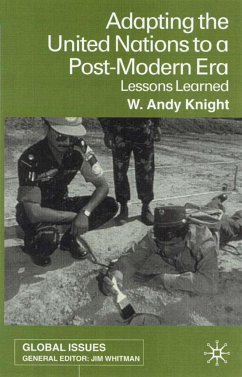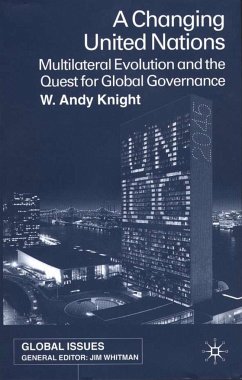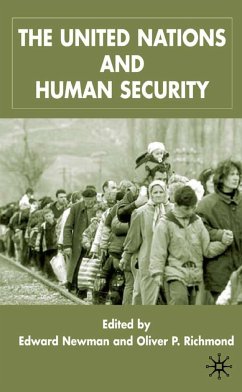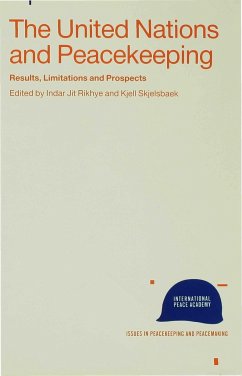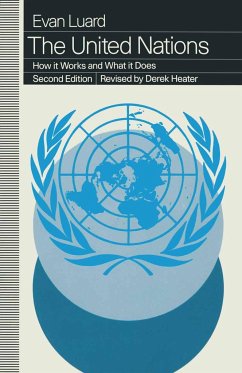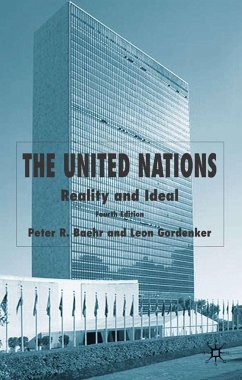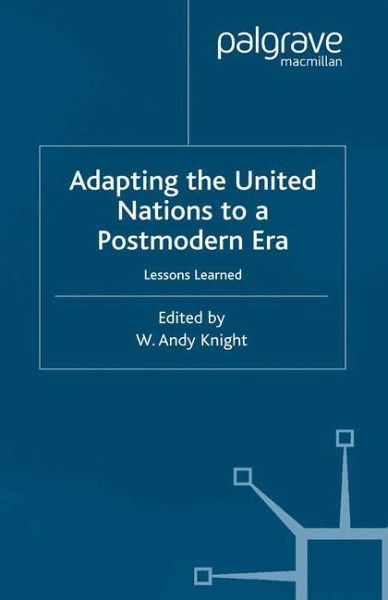
Adapting the United Nations to a Post-Modern Era
Lessons Learned
Versandkostenfrei!
Versandfertig in 6-10 Tagen
76,99 €
inkl. MwSt.
Weitere Ausgaben:

PAYBACK Punkte
38 °P sammeln!
This volume addresses the central theme of adjusting the United Nations system in light of, firstly, the broadening definition of security, secondly, a perceived shift from modernity to post-modernity; and finally, the contemporary debate about reform, adaptation and institutional learning in multilateral institutions during transnational periods. The UN has not been successful in learning appropriate lessons that could facilitate requisite changes to its structure and operations. Thus the authors in this study focus on the lessons learned from the organizations' recent performance in collecti...
This volume addresses the central theme of adjusting the United Nations system in light of, firstly, the broadening definition of security, secondly, a perceived shift from modernity to post-modernity; and finally, the contemporary debate about reform, adaptation and institutional learning in multilateral institutions during transnational periods. The UN has not been successful in learning appropriate lessons that could facilitate requisite changes to its structure and operations. Thus the authors in this study focus on the lessons learned from the organizations' recent performance in collective security, preventative diplomacy, preventative deployment, peacekeeping, peacemaking, peace maintenance, and international legal, environmental and trade regulation.





